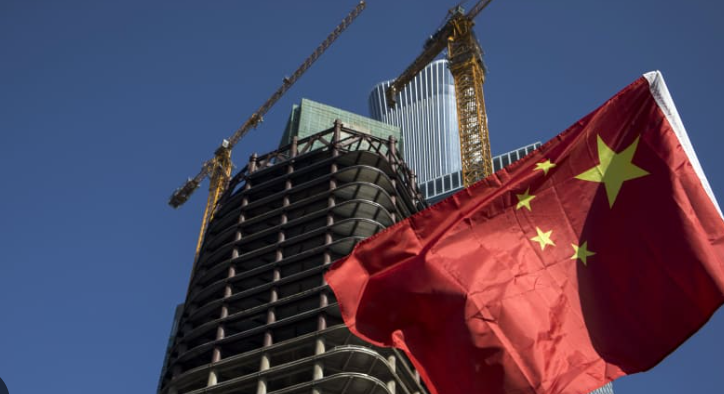$FXI $SPY $BTC
#ChinaEconomy #Stimulus #EconomicGrowth #ChinaStocks #Manufacturing #Investing #BeijingPolicy #GDP #StockMarket #GlobalEconomy #AsiaMarkets #EconomicReforms
China’s latest stimulus measures aimed at revitalizing its slowing economy appear to be far from the impactful “bazooka” response many investors and analysts had anticipated. Instead, policy moves from Beijing have had a modest rollout, with evidence suggesting only a gradual effect on alleviating the strain on growth. August trade and manufacturing data alongside preliminary corporate earnings reveal mixed signals about the impact of such interventions, sparking concerns over whether the measures are sufficient to create meaningful economic momentum. The slowdown in consumer demand, property market distress, and weakening global demand remain core challenges to China’s economic recovery.
The financial markets have reflected this uncertainty. The $FXI, an ETF tracking large-cap Chinese equities, has seen muted gains in recent weeks, suggesting investors remain cautious about betting on a rapid turnaround in China’s economy. Global markets, too, pay close attention. Any prolonged drag in China threatens to weigh on broader indices, including the $SPY, a benchmark ETF of the U.S. market, which has exposure to companies reliant on Chinese demand or manufacturing. Meanwhile, $BTC has exhibited increased sensitivity to macroeconomic developments, including sentiment from major economies like China, as the cryptocurrency’s adoption grows in high-stakes financial contexts.
From a business perspective, corporate earnings are shedding light on the unevenness of the recovery. Industrial production saw slight upticks, but a sharp contraction in the construction and property markets continues to ripple across sectors. Companies in real estate development and construction materials face mounting challenges as Beijing grapples with an ongoing real estate crisis marked by defaults from major players and the unfinished property backlog. Meanwhile, Beijing’s consumer-facing tech giants are prioritizing cost-cutting strategies rather than growth, signaling caution about the current climate. Policymakers, however, are likely hoping these smaller tactical steps will soothe immediate pressures without further stoking concerns of long-term debt risks.
For global investors and policymakers, China’s cautious approach raises broader questions about growth prospects in one of the world’s key economic engines. A lack of aggressive measures suggests Beijing is wary of over-leveraging its financial system, but the tepid recovery could also weigh on global trade and commodity markets. For instance, weaker Chinese demand for raw materials like oil and copper could pressure exporting nations and sectors, creating ripple effects throughout global supply chains. Until China’s stimulus finds its footing and delivers broader benefits, investors should prepare for heightened volatility and a complex rebalancing of economic priorities in the world’s second-largest economy.











Comments are closed.